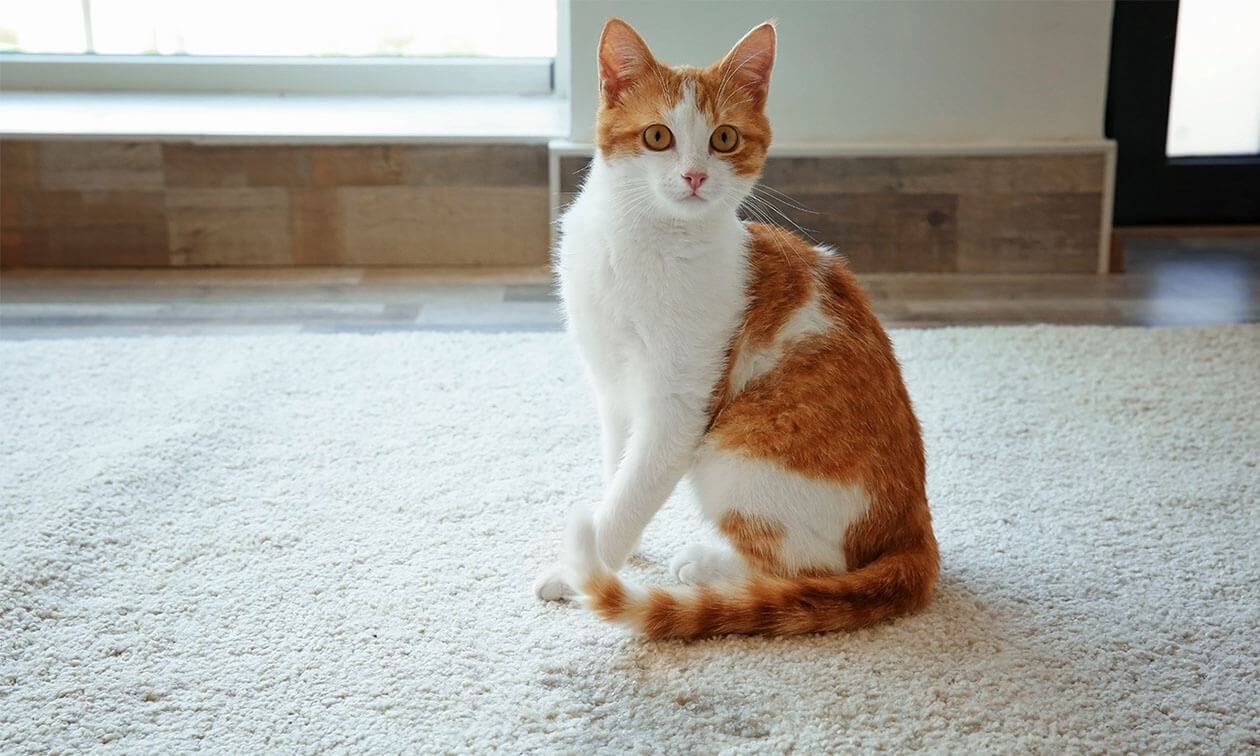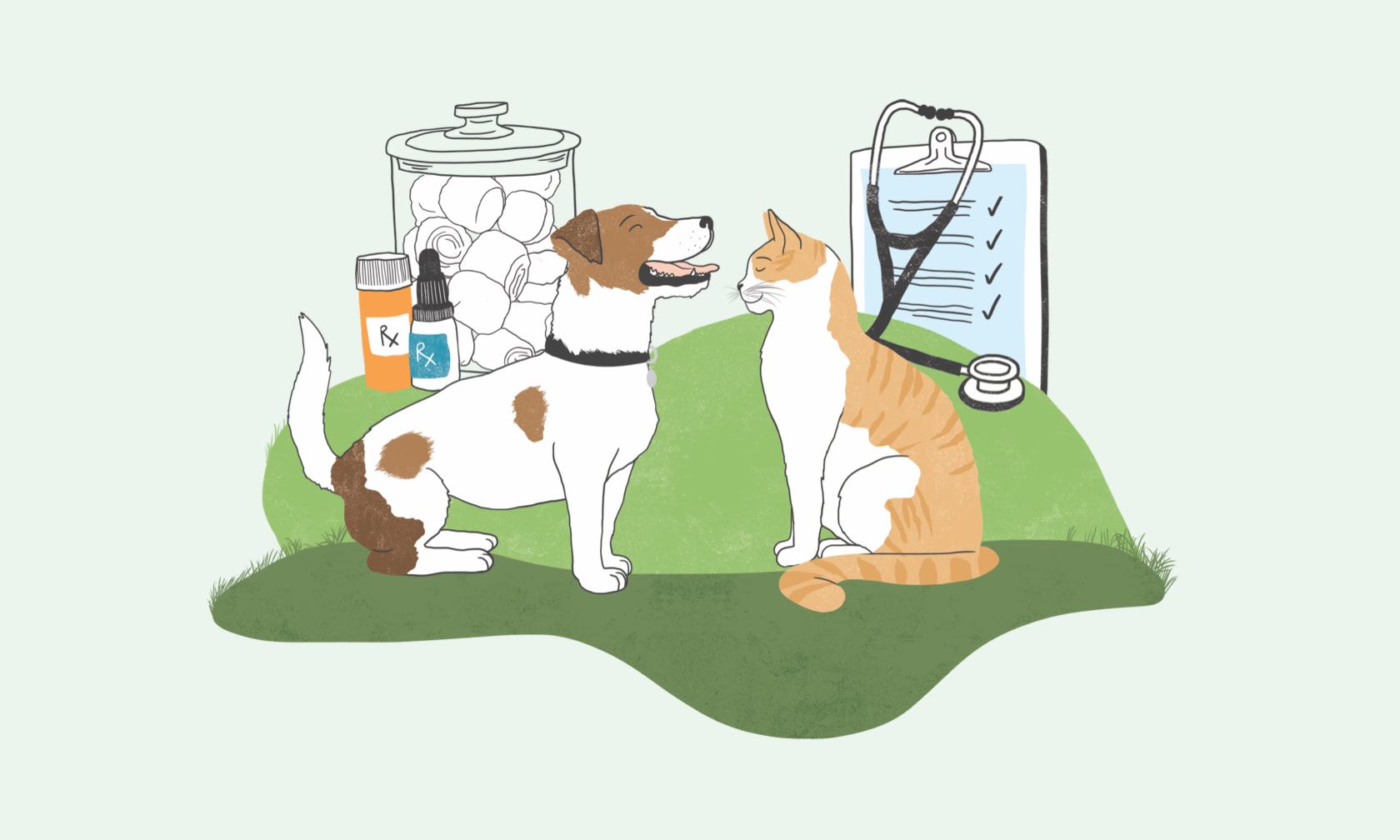Peeing outside the litter box is one of the most common (and frustrating) issues cat owners face. Sadly, many people think it’s something they need to live with. Worse yet, it’s a huge reason cats are surrendered to shelters or put outside.
But it doesn’t have to be this way — all this stress, frustration, and loss can potentially be avoided. If your cat is peeing outside the litter box, they’re trying to tell you something is wrong – they are not being bad or spiteful as it can sometimes be misperceived. Identifying and addressing the underlying cause can not only resolve the issue but also bring peace back to your home. Which is why having your cat examined by your veterinarian is key.
Feline House-Soiling Myths
If your cat is urinating on your bed or in your shoes, it’s not because they’re mad at you, getting back at you for bringing home a new puppy, or trying to defy your rules. That’s just not how cats think. Unlike humans, cats aren’t capable of spite or revenge.
For cats, choosing where to pee or poop is driven entirely by instinct. They simply want to go where they feel safe and secure. So, if your cat is avoiding the litter box, it’s because something is making them feel like it’s no longer the right place.
The question is: what’s causing that change?
Three Reasons Cats Pee Outside the Litter Box
Cats pee outside the litter box for a reason. And that reason will fall into one of three categories:
- Medical
- Behavioral
- Litter box set-up
Medical
There are many medical causes for cats to pee outside the litter box. The most well-known are related to the urinary system.
Urinary tract diseases, such as idiopathic cystitis (bladder inflammation), urinary tract infections, bladder stones or crystals, bladder cancer, or kidney disease, can cause cats to urinate outside the box. These conditions often cause cats to have increased thirst, urgency to urinate, and pain.
Endocrine and metabolic diseases, such as hyperthyroidism, diabetes, and liver disease, may also cause increased thirst and urination, as well as urinary tract infections. All of these can cause your cat to pee outside the litter box.
But those aren’t the only medical reasons for house soiling. Cats will pee outside the box due to any kind of pain or discomfort. It’s their way of waving a red flag to get us to pay attention. Things like ear infections, joint pain, constipation, paw pain, and more can lead to peeing outside the box. The craziest part is that they may not give any other indications. Even cats with broken bones can hide their pain.
Cognitive decline can also impact your cat’s use of the litter box, as can hormones if they’re intact.
The bottom line is if it makes your cat feel bad, it can be a medical cause for peeing. That’s why a thorough medical examination is the first and most important step anytime a cat starts peeing outside the box.
Behavioral
This big category holds a lot of possibilities for your cat’s house soiling. Here are some of the more common emotional triggers for peeing outside the box.
Stress/anxiety. A change in your household, the addition of a new pet or child, a recent medical issue or vet visit, houseguests, change in schedule — any number of stress-inducing events can push your cat past their threshold and lead to the red flag of peeing outside the litter box.
Fear. If something scary happens in the home, like construction or a new pet, your cat may not feel safe getting to their litter box.
Self-soothing. Cats who are feeling anxious often want to surround themselves with their own scent as a way to self-soothe. They will use urine to do this. This can often happen when a new pet or baby is introduced to the home. They come with lots of smells of their own, encouraging your cat to spread their scent as well.
Communication. Cats talk to each other through scent. That includes urine. A new cat inside or visits from a neighborhood cat outside often trigger this type of house-soiling.
Litter Box Set-Up
This is a huge contributor to house soiling. Frankly, we humans get the litter box thing wrong. One reason for that is our lack of understanding around how and why the litter box can be such a significant stressor for our cats. There are three life-and-death issues for cats in the wild, all based on where they eliminate.
Peeing or pooping too close to a water source can contaminate it and make them sick. Doing so near their hunting area can scare off prey by spreading their scent. And because cats are both predators and prey, eliminating leaves them vulnerable — something their instincts are keenly aware of.
These are significant stressors in the wild, and those instincts don’t just disappear because a cat lives indoors or uses a litter box. Their natural drive to manage these risks still influences where, and whether, they feel comfortable going.
So, making sure to have enough litter boxes, a litter box and litter your cat is comfortable with, and that the litter boxes are set up in good locations for your cat is all critical.
First Steps If Your Cat Is Peeing Outside the Litter Box
Priority one is a visit to your veterinarian to rule out medical issues. Your veterinarian will do a physical exam and assess your cat for diseases and pain. They may ask you questions about the cat’s behavior environment. They likely will also recommend other tests such as urinalysis and bloodwork.
Next, look at your litter box setup. You want to try and meet your cat’s natural, instinctual needs as well as possible, so the litter box is where they prefer to pee above any other location. Don’t be afraid to test different litter boxes, litters, and locations to see what your cat responds to. You should have one more litter box than the number of cats in the household, and it should be located away from noisy, high traffic areas. Some cats prefer covered litter boxes, while others do not, so be mindful of the type of box you use.
If your cat is cleared medically and the litter box adjustments aren’t helping their soiling, it’s time to look at behavioral riggers and general stress reduction. Do your best to remove things that may be causing stress, provide extra play and enrichment to help reduce stress, and look at their environment and relationships with other people and pets. Talk to your vet if you think it is behavioral because they can recommend medications for your cat (or in some cases, pheromone sprays) or other things to help calm your cat.
A certified feline training and behavior expert can be a huge help if you’re struggling with your cat peeing outside the litter box.
ZPC-02550



